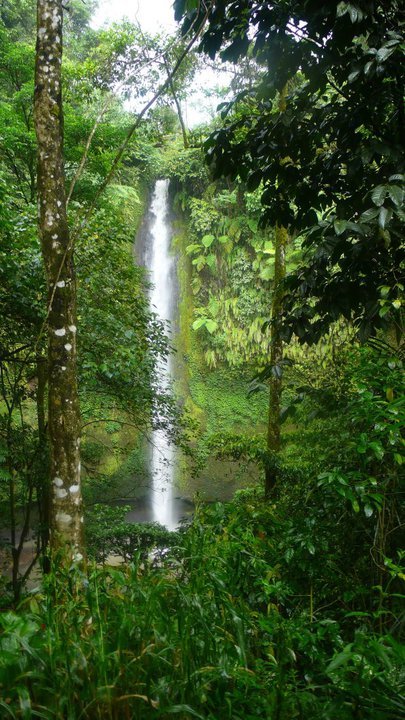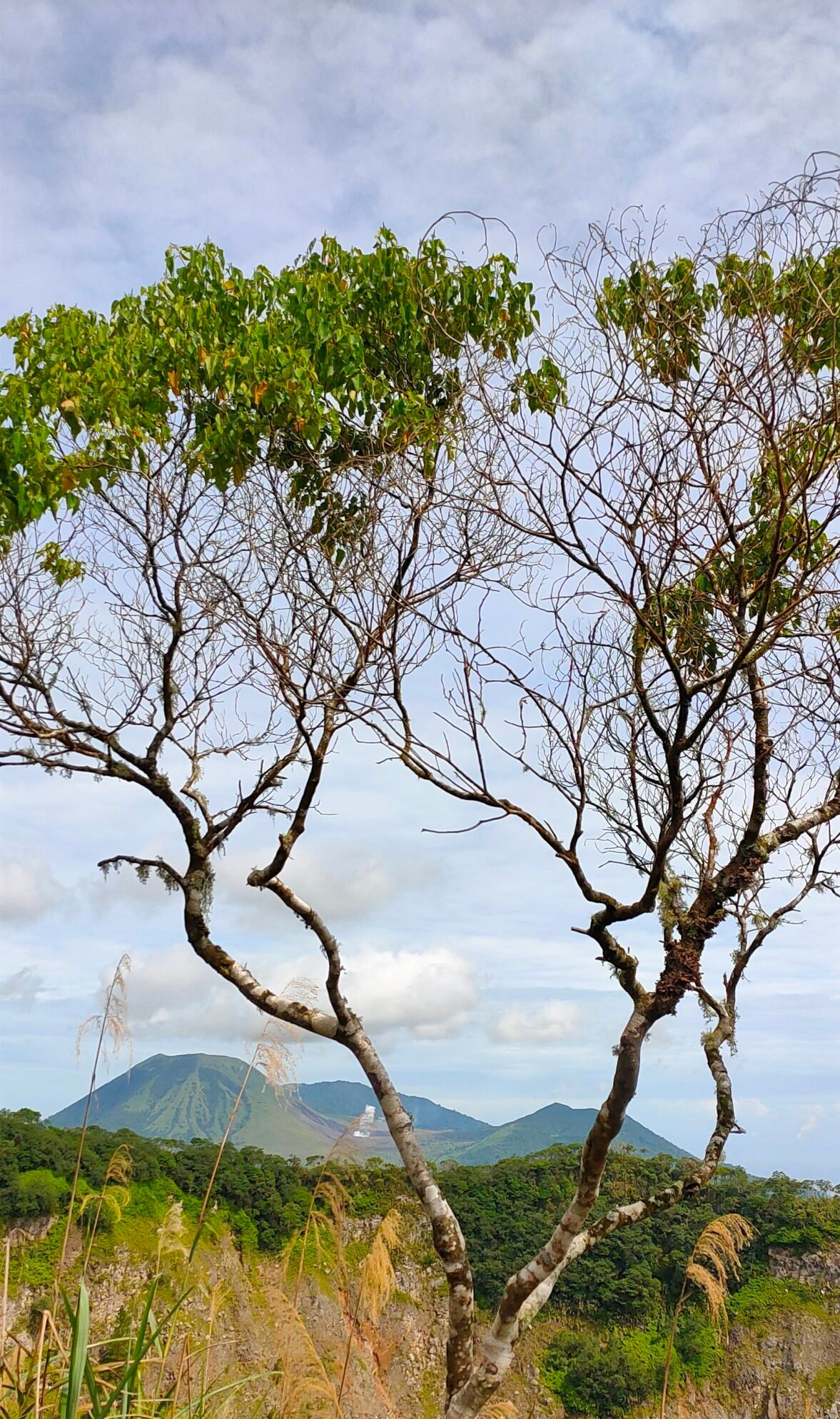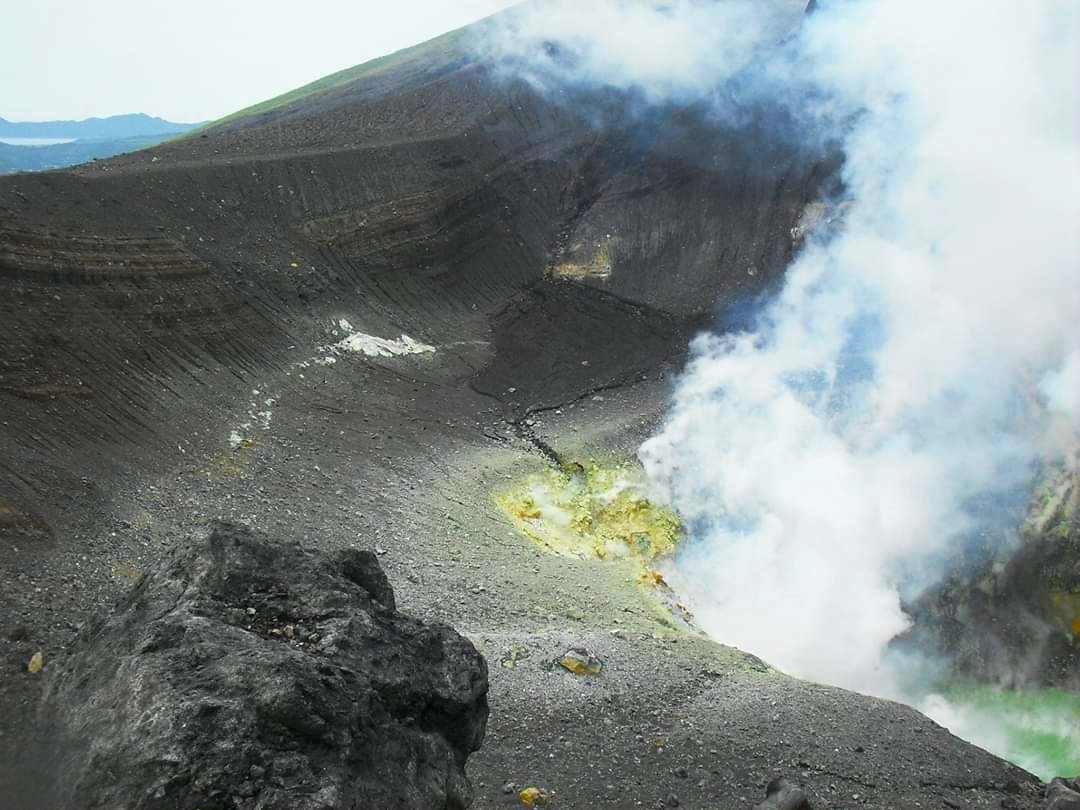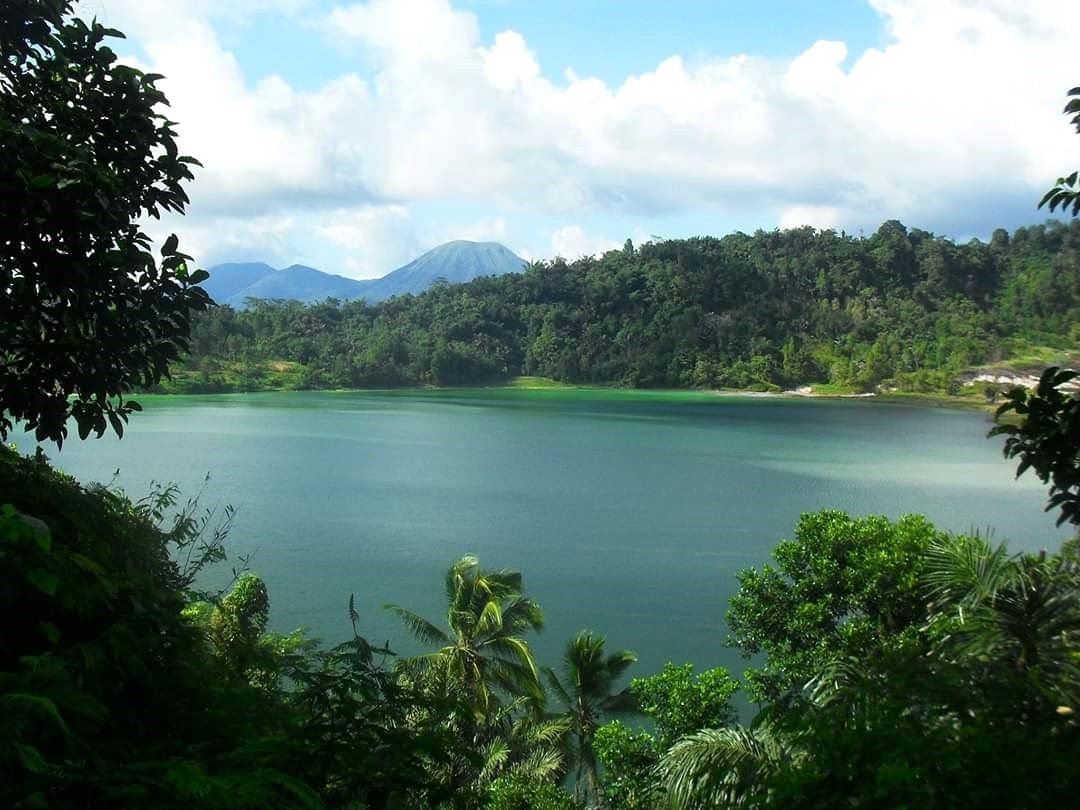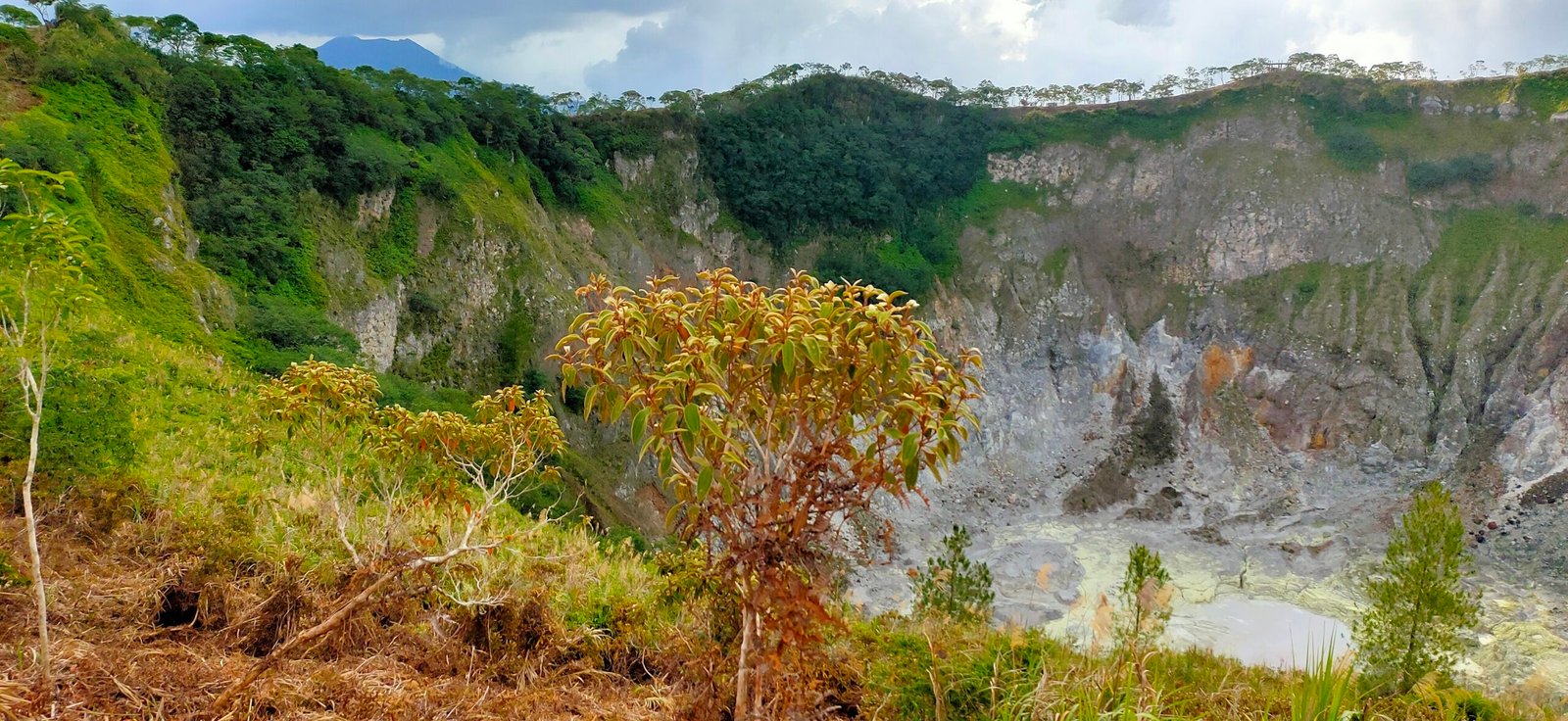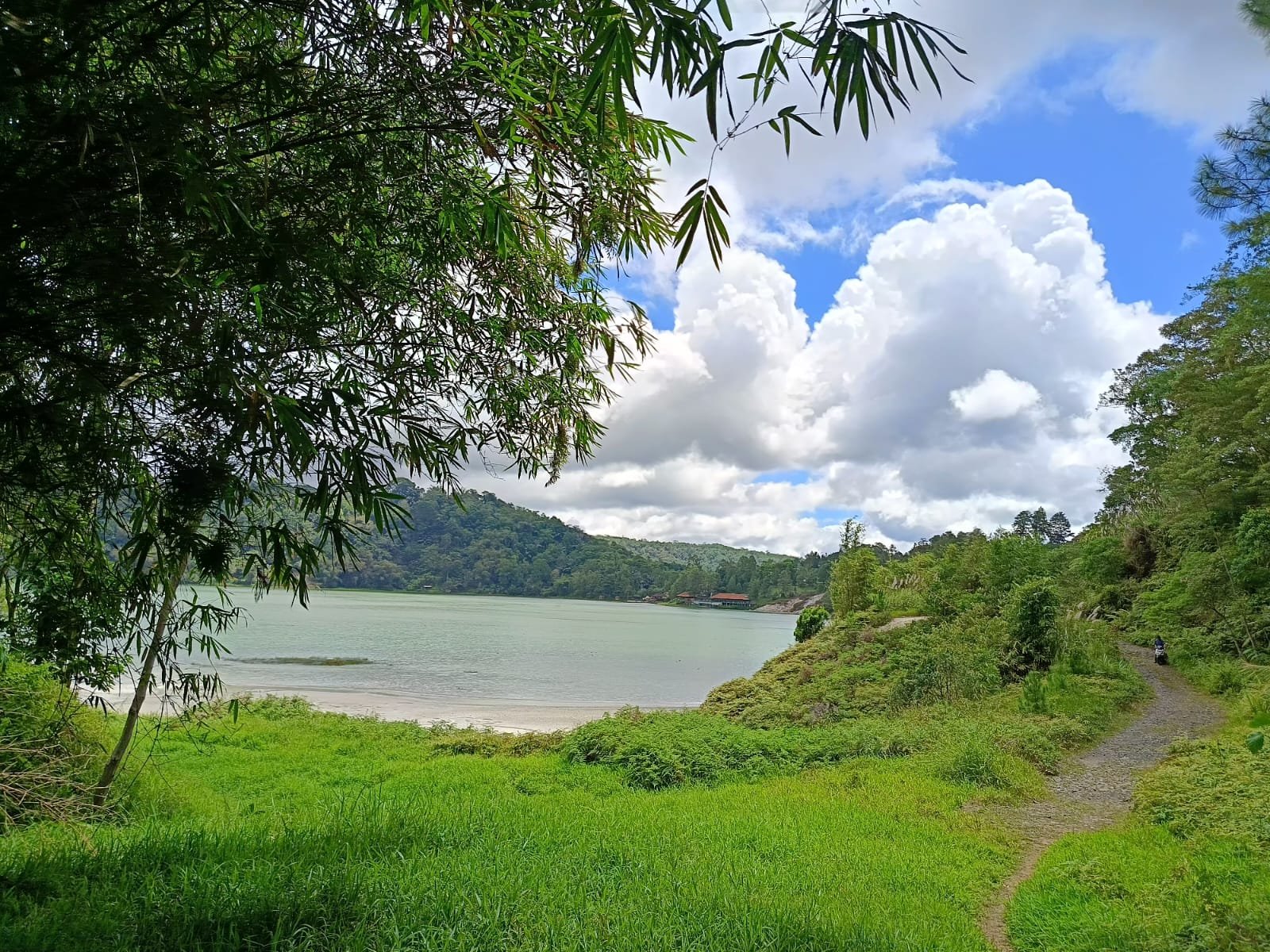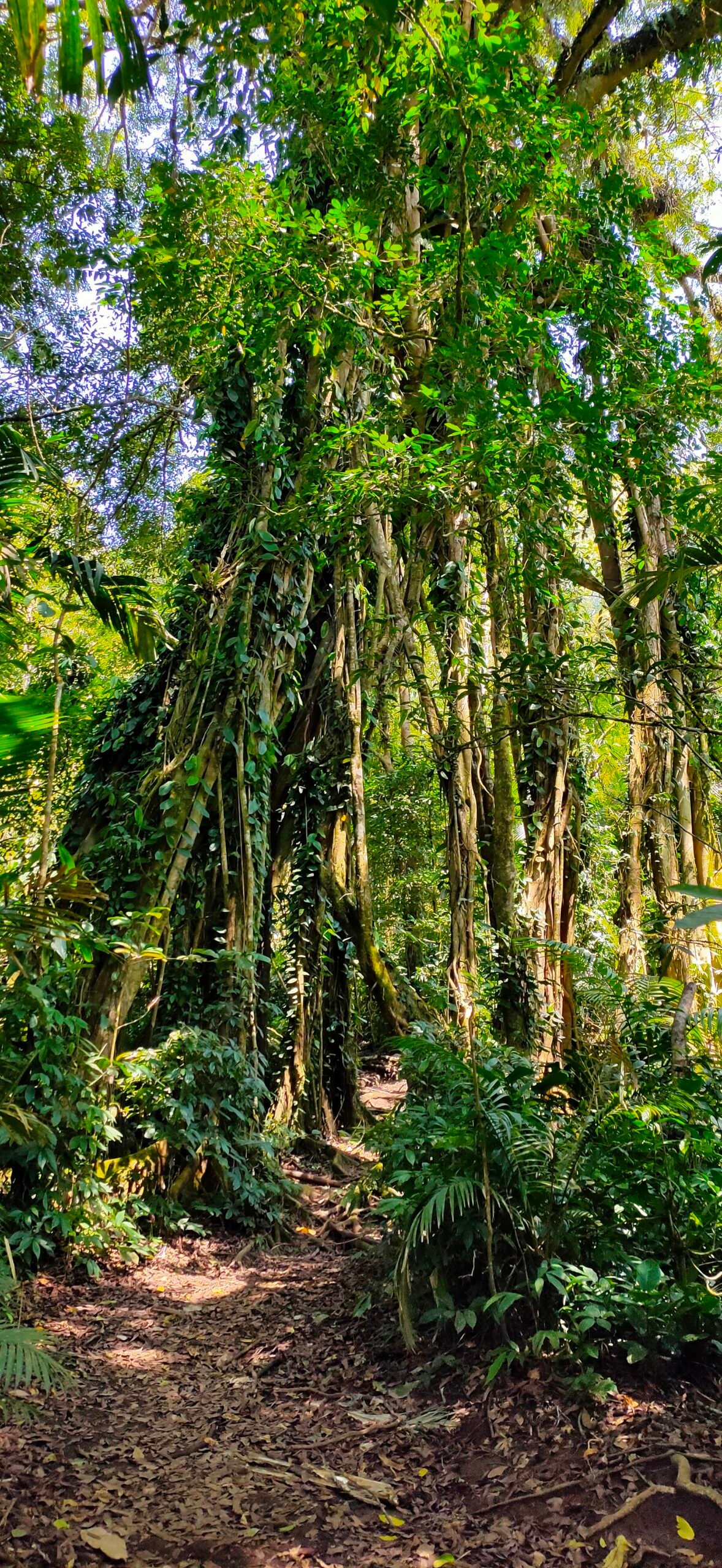Slow Down, Taste and See Our World
TOMOHON CITY: HIGHLAND HARMONY
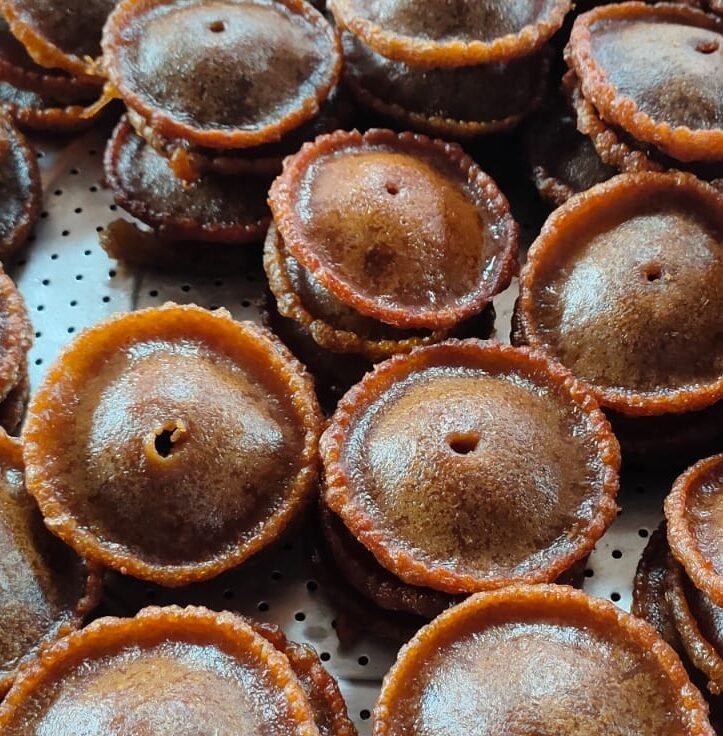
Where Volcanoes Bloom and Traditions Sing
Nestled at 800 to 1.100 meters in North Sulawesi’s Minahasa Highlands, Tomohon, the City of Flowers, dazzles with blooms at Pasar Tomohon. As the City of Students, it hums with youthful energy, while the Center of Christian Missionary anchors faith with hilltop churches. Though Tomohon and Manado lack Michelin-star restaurants, elegant spots like Kai Meya, Kelong, Gardenia, Green Garden, Tanaraya, and D’Linow, alongside cafes like Elmonts and Sliev, offer refined dining. Homestays and farm huts serve intimate feasts, blending volcanic vistas, lush farms, and Minahasan warmth—a soulful escape for adventurers. Uncover these flavors in Minahasa Gastronomy: Traditions Elevated, coming soon!
The Nature: Emerald Escapes
Lakes That Shimmer, Forests That Sing
Tomohon’s geothermal wonders, fueling the City of Flowers, weave through Pasar Tomohon’s floral stalls. Lake Linow’s turquoise-to-emerald waters mirror volcanic minerals, while misty jungle trails hum with endemic birds and butterflies. This biodiversity haven, near Highland Resort’s nature tours, invites explorers to Sulawesi’s wild heart, blending serene escapes with market vibrancy and the City of Students’ energy.
The Lakes, Rivers, Waterfalls & Hot Springs: Cascading Serenity
From Shimmering Depths to Steaming Solace
Tomohon’s waters, cradling the City of Flowers, flow from volcanic springs. Lake Linow’s color-shifting waters dazzle near D’Linow’s dining, while Tekaan Telu’s waterfalls cascade through jungles. Hot springs near Villa Emita Hotel soothe trekkers, blending serenity with Pasar Tomohon’s vibrant energy and the City of Students’ lively pulse.
The Mountains & Volcanoes: Fiery Peaks
Trek to Craters, Feel the Earth’s Heart
Tomohon’s volcanic peaks, like Lokon and Mahawu, rise above the City of Flowers, their craters whispering geologic tales. Treks from Highland Resort reveal steaming vents and panoramic views, fueling adventurers’ spirits. These fiery giants nurture Pasar Tomohon’s fertile soils, linking to the City of Students’ vibrant energy.
The Jungles: Verdant Labyrinths
Canopy Whispers, Hidden Paths
Tomohon’s jungles, cradling the City of Flowers, teem with lush canopies and hidden trails. Near Highland Resort, these verdant labyrinths hum with rare birds, tarsiers, and orchids, echoing Sulawesi’s wild pulse. Explorers wander paths near Pasar Tomohon, where jungle blooms inspire market stalls, blending with the City of Students’ vibrant curiosity.
The Megaliths: Ancient Whispers
Stone Guardians of Minahasa’s Past
Waruga tombs, ancient megaliths near Tomohon, echo the Center of Christian Missionary’s deep roots. These stone sarcophagi, etched with Minahasan motifs, guard ancestral stories near Wise Hotel. Visitors trace history’s pulse, linking to Pasar Tomohon’s cultural vibrancy and the City of Students’ curiosity.
The Farms and Flora: Spice and Petal Frontiers
Petals, Spices, and Highland Harvests
Tomohon, the City of Flowers, flourishes on volcanic soil, growing chrysanthemums, roses, cloves, nutmeg, vanilla, cinnamon, coffee, maize, rice, coconuts, bananas, chili, tomatoes, strawberries, and vegetables for Pasar Tomohon’s vibrant stalls. The International Flower Festival dazzles, while agritourism near Gardenia Country Inn invites picking cloves or strawberries. These fertile fields fuel Minahasan cuisine at Kai Meya’s fiery dishes and Green Garden’s fresh plates, blending nature’s bounty with the City of Students’ energy, a cornerstone of Sulawesi’s agricultural soul.
The People: Minahasan Spirit
Resilient Souls in a Highland Haven
Tomohon’s Minahasan people, heart of the City of Students, embody resilience and warmth. Their traditions, from kabasaran dances to spice crafting, pulse through Pasar Tomohon’s stalls, near Wise Hotel. This vibrant community, tied to the Center of Christian Missionary, welcomes visitors with open hearts, blending heritage with youthful energy.
The Religions: Sacred Summits
Hilltop Churches, Faith in the Breeze
Tomohon, the Center of Christian Missionary, shines with hilltop churches like Bukit Doa, their spires piercing the highland sky. These sacred sites, near Villa Emita Hotel, host vibrant services, blending Minahasan faith with Pasar Tomohon’s cultural pulse and the City of Students’ energy.
The Art & Culture: Warrior Rhythms
Fire Dances, Earth’s Songs
Tomohon’s Minahasan culture pulses through kabasaran war dances and wooden crafts, showcased near Pasar Tomohon. These traditions, rooted in the City of Flowers, ignite festivals near Gardenia Country Inn, blending with the City of Students’ creative energy.
The Celebrations and Festivities: Joyful Highlands
Petals and Drums in Vibrant Harmony
Tomohon’s festivals, like the International Flower Festival, bloom in the City of Flowers, with parades near Gardenia Country Inn showcasing chrysanthemums and roses. Thanksgiving celebrations, tied to the Center of Christian Missionary, pulse with Minahasan dances near Pasar Tomohon, igniting the City of Students’ spirit.
The Hospitality: Warm Highland Hearths
Smiles That Welcome, Homes That Embrace
Tomohon’s Minahasan hospitality, rooted in the City of Flowers, shines in homestays and farm huts near Gardenia Country Inn and Highland Resort. Guests savor cloves, nutmeg, and coconut-infused meals, reflecting Pasar Tomohon’s bounty, while the City of Students’ warmth adds youthful charm.
The Accommodations: Cozy Highland Retreats
Rest Where Volcanoes Whisper
Tomohon’s accommodations, like Gardenia Country Inn, Villa Emita Hotel, Wise Hotel, and Highland Resort, nestle in the City of Flowers, offering cozy escapes near Pasar Tomohon. These retreats, blending Minahasan charm with volcanic views, serve cloves and coconut-infused meals, echoing the City of Students’ vibrant pulse.
The Food: Sulawesi Spice Bites
Rica Heat, Fresh Highland Harvests
Pasar Tomohon, heart of the City of Flowers, sizzles with rica-rica stews of pork, fish, or bat, spiced with chili, cloves, cinnamon, and nutmeg, paired with maize, rice, tomatoes, or strawberries. Coconut-rich klappertaart shines at Green Garden, while the extreme meat market fuels Kai Meya’s fiery plates and D’Linow’s lakeside dishes. These Minahasan flavors, rooted in volcanic soil, spice up the City of Students’ dining, sans Michelin stars, blending highland harvests with bold culinary craft.
The Restaurants, Cafes & Eateries: Spice and Highland Flavors
From Fiery Rica to Velvety Roasts
Without Michelin stars, Pasar Tomohon’s chili, cloves, nutmeg, vanilla, and tomatoes fuel elegant dining. Kai Meya’s open-fire rica-rica, Kelong’s Taman-view plates, Gardenia’s coconut-klappertaart, Green Garden’s strawberry juices, Tanaraya’s cinnamon-spiced bites, and D’Linow’s maize dishes shine. Cafes like Elmonts (coffee roasts), Sliev (Lokon-view banana smoothies), Kilapong Hills (chili-infused sips), and Tu’ur Maasering (coconut-palm wine) charm the City of Students, complementing fine dining in homestays near the City of Flowers.
The Traditional Market: Tomohon’s Spice Heartbeat
Spices, Crafts, Minahasan Pulse
Pasar Tomohon (Pasar Beriman), core of the City of Flowers and City of Students, thrums with chili, cloves, nutmeg, vanilla, cinnamon, tomatoes, strawberries, maize, rice, bananas, and coconuts alongside woven crafts. Weekend spice contests and music fuel Green Garden’s dishes and Elmonts’ coffee roasts. Rooted in the Center of Christian Missionary, this market weaves commerce and community, a fiery gateway to Sulawesi’s soul.
The Neighbors: Sulawesi’s Highland Kin
Villages and Vistas Beyond Tomohon
Tomohon’s neighbors, like Minahasa’s villages, share the City of Flowers’ volcanic charm. Near Highland Resort, these hamlets offer clove and nutmeg farms, echoing Pasar Tomohon’s vibrancy. Their markets and churches, tied to the Center of Christian Missionary, pulse with the City of Students’ energy.
The Access: Gateways to Tomohon
Roads to the Highland Heart
Tomohon, the City of Flowers, is a 45-minute drive from Manado’s Sam Ratulangi Airport, with buses and taxis weaving through Minahasa’s hills. Near Highland Resort, roads connect to Pasar Tomohon, pulsing with the City of Students’ energy and the Center of Christian Missionary’s heritage.
Forget About White Tablecloth and Michelin-Starred Restaurants
Fine-dinings can be arranged somewhere in the farm huts, homestays or private houses. For elegance, there are several restaurants including Gardenia, Kai Meya, Tanaraya, Kelong or D’Linow where stunning views await.
Join Us In Our Food Discoveries
Let us take you on a journey across Sulawesi and Indonesia revealing the unknowns and learn more about the already familiar.


